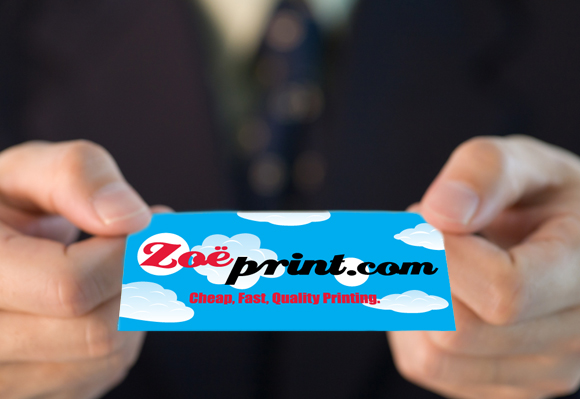Printed Business Cards–Cultural Differences Around the World
« Back to Articles

Although the exchanging of business cards is merely a convenience to most Americans, done as quickly as possible as a reminder of the other party's contact details, other cultures have attached a great deal of significance to printed business cards and the manner in which they are exchanged. What follows is a brief description of the ways in which business cards are used and perceived in a few cultures worldwide.
For a frame of reference (assuming you are from the US, though the UK, Australia, and several other countries perceive business cards very similarly), let's start with America. In the US, business cards are typically seen as just that, cards which contain a person's name, contact information, and place of employment (if applicable). They are exchanged casually but carefully; usually, a person who hands his card out to everyone he meets is seen as insincere or even a bit self-aggrandizing. Only when an exchange of contact details is genuinely necessary are cards exchanged, and even then, not too much attention is paid to the form of the card itself. Putting another's card in one's pocket immediately after accepting it is perfectly acceptable; it is commonly understood that the card can be studied later.
The situation could not possibly be more different in Japan, where business cards are taken much more seriously than in America. Even minute details, from the texture of the card to the shape to designs printed on the reverse side, are taken into account during production―the card is seen as an envoy, a little piece of its owner meant to convey not only contact information but also subtle details about the owner's status, personality, and creativity. Interesting configurations such as waterproof cards, pop-up cards with scenes on the interior, or even cards that can be reassembled into other objects are used in Japan, and the start of virtually any successful business relationship is the successful exchange of cards. There is a full etiquette surrounding this as well: in an exchange, the person of lower status must bow and offer his card first, and both parties typically study their opposite's card intently after receiving it and then leave it face-up in front of them for the duration of the meeting that typically follows a card exchange. It's a very difficult process for the uninitiated, but it's nonetheless a crucial one to understand to conduct business successfully in Japan.
Other countries around the globe have still different norms surrounding business cards. While there's not space here to go into a great deal of detail, a few examples are below.
- In Germany, some business card holders are very particular about the academic and professional titles listed on the card: when addressing someone, the title on the card should typically be used unless otherwise stated.
- In Israel, engraved business cards are seen as superior to printed ones.
- In China, cards are both offered and accepted with two hands. Using only one hand is not considered to be appropriately respectful to the other party.
When conducting business abroad or at home with individuals of a different culture, understanding how to properly use a business card can show respect and understanding and lay the foundation for a successful business relationship. At ZoePrint.com, we produce cheap, high quality business cards and other business printing every day. We have high quality standards and quality checking to ensure the business card meets your needs. Using your business cards will be easy most of the time; however, in the rare instance where you may be dealing with a different culture, try to find out how to make the best use of your cards before using them!
Click here to see the prices of our cheap business cards.